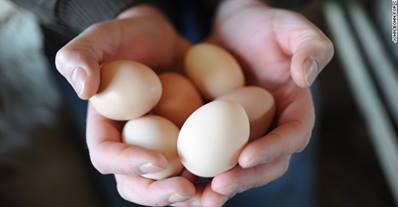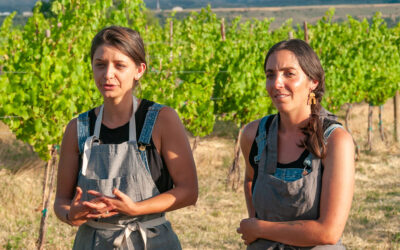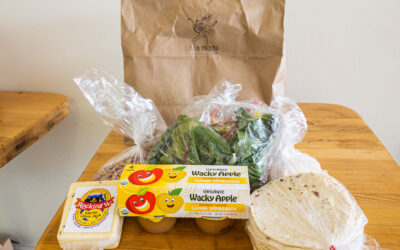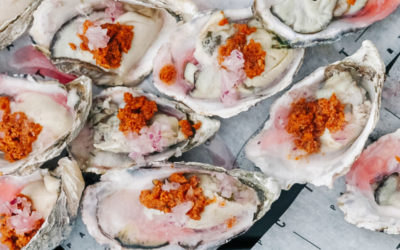Brian Maloof knows it sounds crazy. Why would a small business build a chicken coop on its roof?
Maloof’s father, Manuel Maloof, opened his namesake watering hole in 1956. Manuel’s Tavern has been an Atlanta institution for decades, a place where journalists and cops rub elbows with legislators, carpenters and college students as they belly up to the wooden bar. The same portrait of JFK has hung over the bar since the days when “unaccompanied women” were not welcome. It’s surrounded by pennants of Atlanta sports franchises, past and present
But things haven’t been easy lately. So Maloof “put it out there in prayer” and waited.
“I just said, ‘Father, I don’t know what it is that you want me to do, but it sure has been tough. I need some help here,’” said Maloof, who left his paramedic job in 2001 to work at Manuel’s.
The response he got back was “chickens.”
 That was in April. By Thanksgiving, Maloof had raised 24 egg-laying chickens and built a 550 square-foot permanent residence for them on the roof of Manuel’s. Each day, Maloof (or one of his employees) ascends a ladder from his private office to collect eggs from the coop, which is painted in a shade of green from Lowe’s stock of botched mixed paints. The gaggle of speckled Sussex and Australian Australorp chickens erupts in excitement as Maloof approaches the fenced-in porch – made almost entirely of repurposed material – where they eat organic feed from used salad dressing vats and nest in old pickle buckets.
That was in April. By Thanksgiving, Maloof had raised 24 egg-laying chickens and built a 550 square-foot permanent residence for them on the roof of Manuel’s. Each day, Maloof (or one of his employees) ascends a ladder from his private office to collect eggs from the coop, which is painted in a shade of green from Lowe’s stock of botched mixed paints. The gaggle of speckled Sussex and Australian Australorp chickens erupts in excitement as Maloof approaches the fenced-in porch – made almost entirely of repurposed material – where they eat organic feed from used salad dressing vats and nest in old pickle buckets.
Even if it sounds crazy, people seem excited. A Facebook post announcing the chickens’ arrival earned more than 1,000 likes, 280 shares and accolades ranging from “ambitious and innovative” to “exceptional and extraordinary.”
Maloof’s late father, “a dear man, would love this,” one commenter said.
In an industry where 10 years can make an establishment “old,” mainstays such as Manuel’s are grappling with the tension between staying the same and maintaining relevancy for current and future generations.
With few notable exceptions, there’s no single dish or cocktail that preserves a restaurant’s legacy, said Mitchell Davis, executive vice president of the James Beard Foundation. “Legacy is based on those intangible elements that root an establishment in the community, bringing people along for the ride.
“You have to hang onto some things and let go of others,” Davis said. “It’s different in each community, but there’s definitely a need to realize the world changes really quickly, and what’s going to keep you there is something remarkable, a special formula that balances the old and the new.”
Manuel’s has never been a destination for fancy food or drinks, though subtle changes have taken effect since the days when beer and hot dogs were the only options. Much of it has occurred under Brian Maloof, who brought in Angus beef and craft beers. He also got rid of Styrofoam takeout containers and installed solar panels and electric car chargers in an attempt to be forward-thinking in “trying to do the next right thing.”
Along with the chickens, 2014 ushered in perhaps the biggest shift to date at Manuel’s: a smoke-free environment. For years, Maloof resisted it because he thought it was the right thing. Plus, until recently, most of Manuel’s customers smoked, and Maloof didn’t want to alienate loyal customers, whom he regards as friends.
“Nothing at Manuel’s changes quickly, and it’s been designed that way. We don’t shoot for trends or just sit back and wait to see if it has validity. We run it by customers first,” he said. “We’re changing these things that a lot of old-timers thought we’d never do, but we did it and maintained integrity and culture.”
In many cases, including Manuel’s, the focus on farm-to-table is a return to how restaurants did business only a generation ago or so. Most of the vegetables served in Nashville’s Capitol Grille are grown about five miles from the iconic Hermitage Hotel, which has been the restaurant’s home since 1910.
Five years ago, Chef Tyler Brown set out to create a vegetable garden so he could invite school and community groups to learn about where their food comes from. The Hermitage Hotel had just begun adding a $2 donation to guest bills to benefit the Land Trust of Tennessee when Brown asked if he could use fallow land under the trust’s control, about five miles from the hotel.
It took some time and tilling to get into a groove, but now the garden at Glen Leven provides most of the vegetables prepared at the Capitol Grille. Its success led Brown to branch out to cattle farming on 250 acres of property about an hour west of Nashville, which provides beef for the restaurant.
“We just want to be a part of the community in a different manner that makes a long-term difference,” he said, “This is not just a flash in the pan, a trend for us. This is something we’re committed to doing, and we’re doing it well.”
The experience opened Brown’s eyes to the amount of work involved in creating a single dish – a lesson to which Maloof can relate.
Maloof raised the chickens in his home for the first few months, “busting his butt” to protect them from weather, hawks and foxes. When that first egg was finally laid, it was an epiphany, he said.
“I thought I had an understanding and a respect for food, and I didn’t. I’ve been taking it for granted all along, and I didn’t realize it until I got that egg,” he said.
He realized he had a phone full of resources for every situation imaginable at the tavern. He knew his accountant, the guy who picked up his trash, the guys from Jack Daniel’s and Sweetwater Brewery.
“You know what I don’t have on my phone? I don’t have a farmer,” he said. “I have a food business, and I don’t know the name of one farmer. That really bothered me.”
The chickens pay their way with a weekly haul that provides enough eggs for a limited Sunday brunch run. And, it turns out people are willing to shell out an extra $4 for a salmon benedict or BLT made from the special eggs, Maloof said. Each week, Manuel’s sells out of the eggs.
It’ll take some time to become a moneymaking venture though. In the meantime, Maloof is content with the excitement the chickens have generated among the public and the staff. Morale has not been this high in a long time, he said.
Besides, he realizes now that if he can’t be the cheapest restaurant in town, he needs to do something to stand out from the other bars and restaurants.
“We needed something to boost morale and excite the customer base, and this was me trying to think outside the box,” he said. “All these places that are doing farm-to-table, I understand it now. I didn’t understand the additional expense of organics. I understand it now.
“It’s made me a better restaurant owner.”
CNN’s Eatocracy Blog
February 4, 2014




